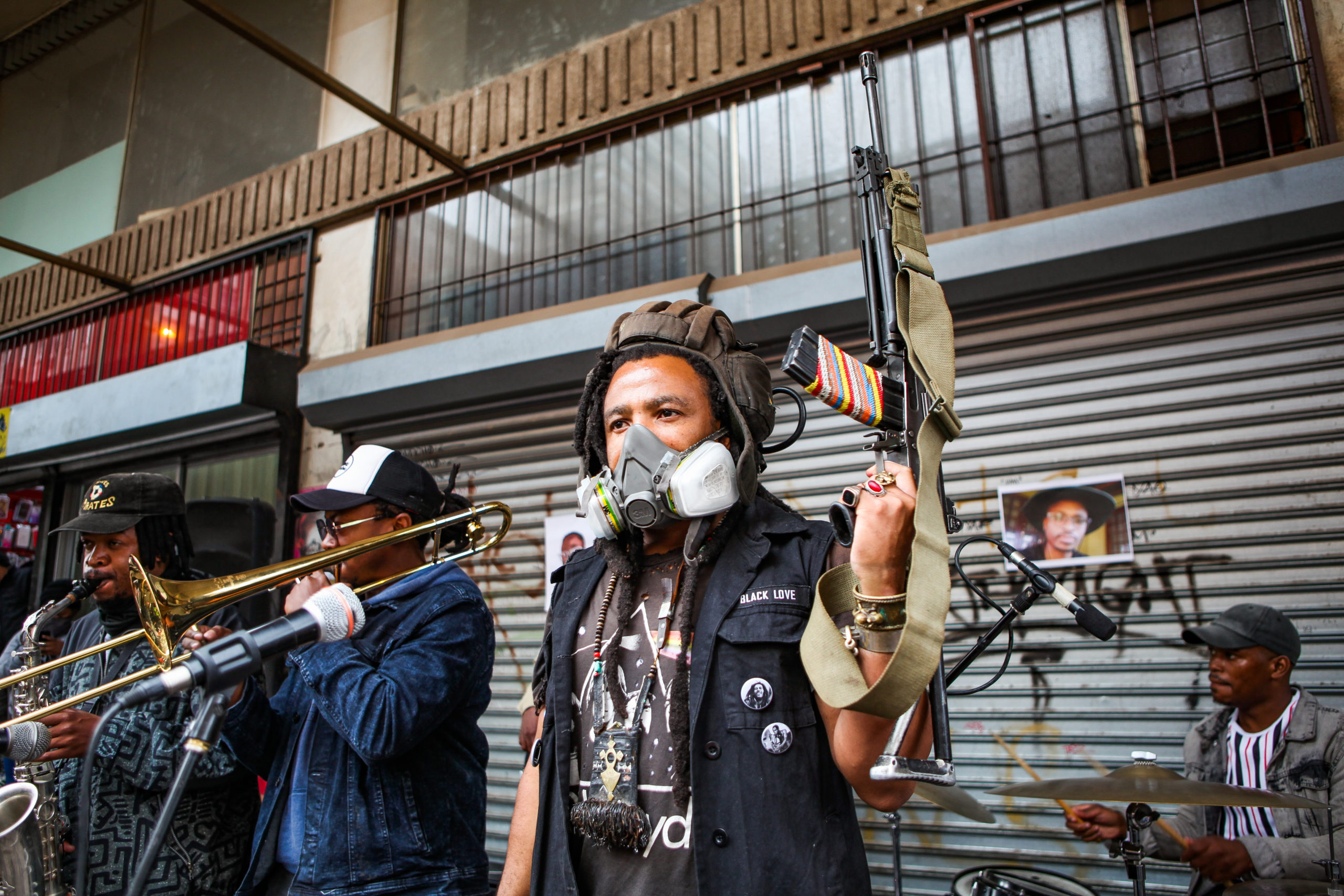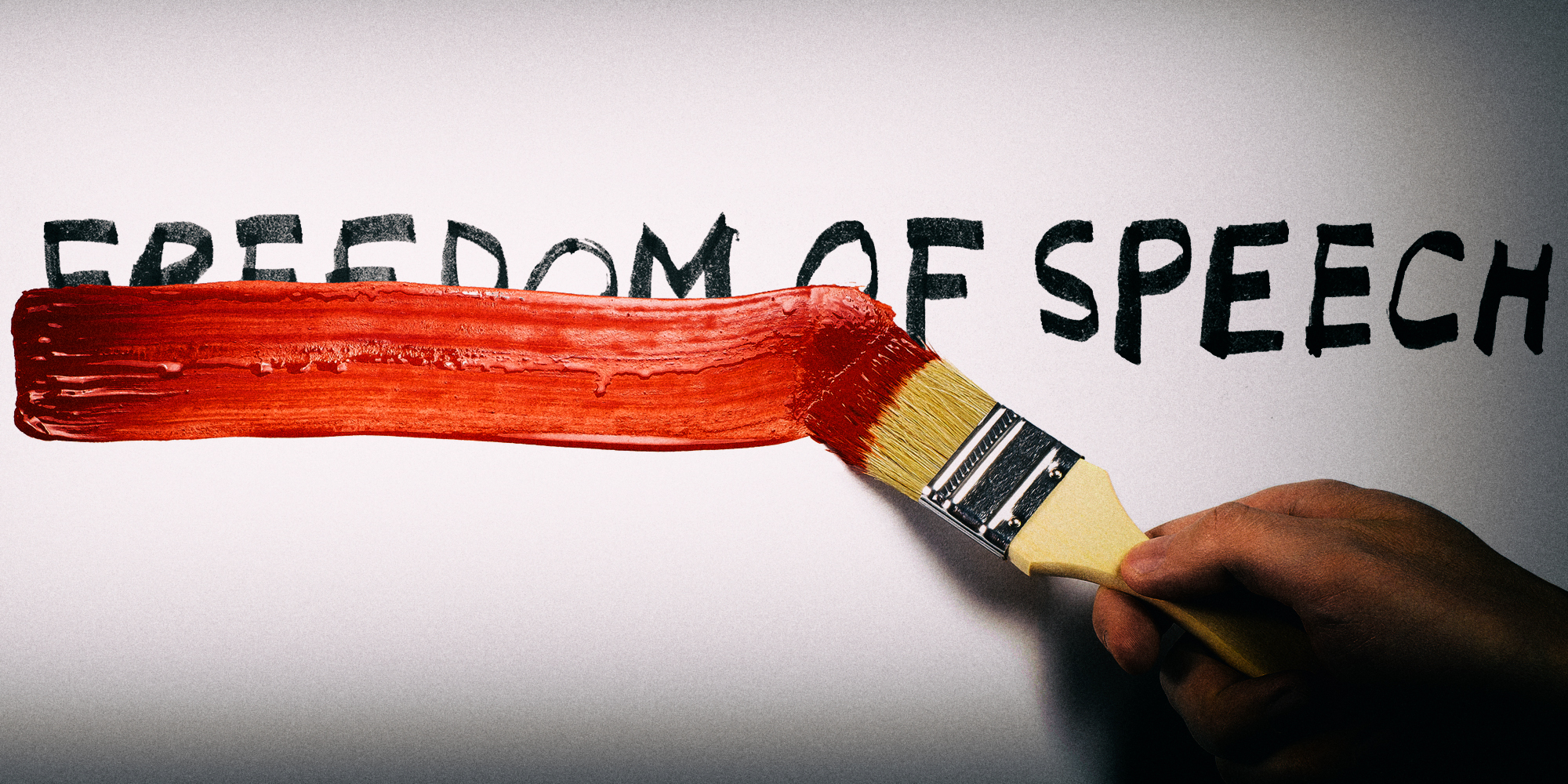The State of Free Expression in South Africa Report, published by the Campaign for Free Expression (CFE), tells of the hard road to finding the truth – which, according to popular culture, “is out there”, but often is being distorted, misreported or being very well and deliberately hidden.
Looking at data from 2018, the start of the presidency of Cyril Ramaphosa, to mid-2023, the CFE has used various sources and looked at issues of access to information, including policy, legislation, socioeconomic status and other factors.
The CFE is a nonprofit “dedicated to protecting and expanding the right to free expression for all”. It states: “We don’t care what your view is: if it is legal, we will defend your right to have it, express it, argue it and fight for it.”
In the preface of the report, CFE executive director Anton Harber paints a dire picture of an ongoing and uphill battle.
“The Campaign for Free Expression team appears to be dashing from issue to issue day after day, reacting constantly to a range of threats to free expression. In a typical week we may find ourselves making representations to Parliament... drafting amendments... in court fighting a SLAPP suit against journalists... considering whether to intervene in a case where a trans youth...”
 Campaign for Free Expression executive director Anton Harber. (Photo: Supplied)
Campaign for Free Expression executive director Anton Harber. (Photo: Supplied)
It is a glimpse into the daunting world of upholding the right to free expression. In the preface, Harber asks: “Why, when the Constitution has such strong guarantees of free expression and the courts generally have a good record in defending these rights, do we find ourselves running from pillar to post to defend citizens?”
Death, corruption and censorship
With South Africa’s high levels of crime and corruption, and given its unequal society, truth and freedom of expression are not easy to attain.
“Journalists face numerous and frequent attempts to silence them, including intimidation and assault, death and rape threats, state surveillance and court action.”
Key observations include: “Targeted killings,” threats against “those who wish to expose corruption” (including environmental and other activists), as well as “structural violence (that) silences LGBTIQ+ people”, and “systemic corruption and maladministration”.
There is a likelihood that “the state, using the Film and Publication Board, will attempt to play a greater role in censoring the arts and online content”.
The report notes its limitations: “We do not deal with the rights of migrants, free expression in the country’s prisons or academic or religious freedom. Gender and LGBTQI+ rights are also worthy of more detailed consideration.”
Speaking to Daily Maverick, Harber says: “We have a great deal of free expression in SA, but this report points to serious warning signs that we will need to work hard to defend it.”
Journalists under threat from multiple sources
“Journalists are on the frontline of the search for information and often come under threat.”
The report spotlights journalists in the field being “prevented from reporting freely while on assignment.”
It is also noted: “Female reporters can be more vulnerable than their male counterparts to the threat of violence.”
And, for women journalists: “There were also calls for the journalists to be raped, killed and for their home addresses to be published online.”
Read more in Daily Maverick: ‘Section 16’ and violence against women journalists
Attacks on journalists have been perpetrated by “police, members of political parties and other groups, the general public and criminals.”
- 29% of reported attacks on journalists are by general members of the public.
- 20% of reported attacks are criminal; “to rob journalists of their equipment.”
- 14% of reported incidents are “attacks by political parties or groups, most notably the Economic Freedom Fighters (EFF)”.
Online attacks are a regular occurrence, most going unreported – “with many journalists accepting them as ‘part of the job’ ”.
Surveillance of journalists is also a huge concern, with eight cases being referred to – “presented in argument to the high court in 2019”.
In 2021, there was “the reported surveillance of News24 journalist Jeff Wicks by the police’s Crime Intelligence Division”.
At that time, Daily Maverick’s Marianne Thamm had her house broken into and work laptops stolen, “a month after the Constitutional Court declared the Regulation of Interception of Communications and Provision of Communication-related Information Act (Rica) unconstitutional”.
“Rica had allegedly been used by the state in the surveillance of journalists.”
 Former Independent Police Investigative Directorate boss Robert McBride speaks at the World Press Freedom Day event hosted by Daily Maverick and The South African National Editors’ Forum at St George’s Cathedral in Cape Town on 3 May 2019. (Photo: Leila Dougan / Daily Maverick)
Former Independent Police Investigative Directorate boss Robert McBride speaks at the World Press Freedom Day event hosted by Daily Maverick and The South African National Editors’ Forum at St George’s Cathedral in Cape Town on 3 May 2019. (Photo: Leila Dougan / Daily Maverick)
Public attacks on the media by politicians and leaders of political parties are also highlighted for the serious threat they pose to journalists and free expression (Julius Malema, Boy Mamabolo and Tito Mboweni, to name a few, are cited).
Harber tells Daily Maverick: “Threats to journalists have a chilling effect, as one has to think twice about writing critically about certain people or organisations who respond aggressively... enforcing self-censorship and suppressing critical scrutiny.”
It is also very difficult to get information from government and the courts, with the report stating: “Incidents suggest a growing trend of deliberately shutting out the media from government comment” and “... several instances of journalists being banned from court proceedings or limits placed on their ability to report.”
Read more in Daily Maverick: No, Minister – government’s communication breakdown is not a good story to tell
The South African National Editors’ Forum has also written about government being unresponsive and how this curtails transparency and information flows to the public.
A lack of response should, however, not deter journalists from asking questions and pushing for answers.
“Too much of our journalism is just stenography – telling the public what powerful figures think and say. We have some, but need much more interrogation and questioning of all those with power, in the public and private sector,” says Harber.
The right to protest
South Africans use protest to show their unhappiness, but are often met with heavy-handed police responses.
 An EFF supporter holds a South African flag in Church Square, Pretoria on 20 March 2023. The EFF called on its supporters around the country to protest in an attempt to shut the country down to force South African President Cyril Ramaphosa to resign. (Photo: EPA-EFE / Kim Ludbrook)
An EFF supporter holds a South African flag in Church Square, Pretoria on 20 March 2023. The EFF called on its supporters around the country to protest in an attempt to shut the country down to force South African President Cyril Ramaphosa to resign. (Photo: EPA-EFE / Kim Ludbrook)
The report highlights the death of a bystander at a protest in Johannesburg in 2021, who was hit by a rubber bullet. It also notes the preemptive response in March when the EFF threatened a national shutdown and called for the resignation of President Cyril Ramaphosa:
“That resulted in the arrest of 87 people ahead of the protest and the deployment of the military for a month...”
 Students demand the renaming of Siemens Street to Ntumba Street on 17 March 2021 in Johannesburg. Mthokozisi Ntumba was killed by a police rubber bullet during a student protest. (Photo: Gallo Images / Sharon Seretlo)
Students demand the renaming of Siemens Street to Ntumba Street on 17 March 2021 in Johannesburg. Mthokozisi Ntumba was killed by a police rubber bullet during a student protest. (Photo: Gallo Images / Sharon Seretlo)
The Films and Publications Amendment Act (2022) is scrutinised for its impact on not only the distribution of games, films and so on, but also the drafting, which means some media organisations have to register as distributors of online content. There is also concern that the Film and Publication Board under the act is seen to have the last word on what is and is not “allowed speech”.
The arts are also scrutinised, noting disparities in funding, corruption and issues with the National Lotteries Commission.
Voices in the mainstream media
Reports on media coverage in the 2021 local government elections show an under-representation of “citizen voices” (5% by the SABC, 4% by other media houses), poor coverage of election issues, and “women’s voices were significantly underrepresented... Studies have also suggested that key issues affecting women are underrepresented overall.”
The report says some reasons given for this include organisations’ agendas, issues of ownership and job losses in the media landscape.
Harber tells Daily Maverick: “The reduced capacity of our traditional media, and the shrinking of newsrooms, also means less reporting, less information...”
The report quotes a 2019 study that “more than 71% of community radio stations surveyed” used more than half their airtime for talk radio as “the primary format for public participation.”
It also notes that internet data prices prevent many from accessing information.
On mis- and disinformation, the report finds: “The circulation of false information, including by politicians and the news media, can be considered reasonably high in South Africa.”
This means, says Harber, that we need to “support good journalism and fight those who purposely spread falsity. We have seen again and again around the world that when lies and propaganda overwhelm journalism, we are on a path to totalitarianism.”
Legal frameworks
Several laws are also questioned, including the Films and Publications Amendment Act, the Protected Disclosures Amendment Act and Section 205 of the Regulation of Gatherings Act.
The report states: “A common thread in laws passed or proposed... is both the vagueness of the definitions used and the criminalisation of infractions of the law.”
It also notes that the law accords insufficient protection of whistle-blowers and gives special attention to Covid and the realities, events and legislation enacted that cracked down on free expression – and that “as a consequence, these rights need to be clawed back by civil society actors, the media and others”.
Hate speech
The report also looks at the South African Human Rights Commission reporting that “69% of the complaints it receives are race-related, and the largest number relate to hate speech”.
This is a recurring feature of public utterances and arguments, and while pointing out several examples (the case of Jon Qwelane, the old South African flag, the song “Kill the Boer”) the point is made that: “Parliament is in the last stages of approving the Prevention of Hate Crimes and Hate Speech Bill.” (The Bill provides for jail sentences of up to eight years for hate speech.)
The report’s conclusion sums up why everyone – citizens, journalists, activists, politicians – should care about the report:
“What seems to be missing is a shared commitment to freedom of expression and a common understanding of what this entails.” DM




 Students demand the renaming of Stiemens Street to Ntumba Street on March 17, 2021 in Johannesburg, South Africa. Mthokozisi Ntumba was killedby a police rubber bullet during a student protest. (Photo: Gallo Images / Sharon Seretlo)
Students demand the renaming of Stiemens Street to Ntumba Street on March 17, 2021 in Johannesburg, South Africa. Mthokozisi Ntumba was killedby a police rubber bullet during a student protest. (Photo: Gallo Images / Sharon Seretlo) 